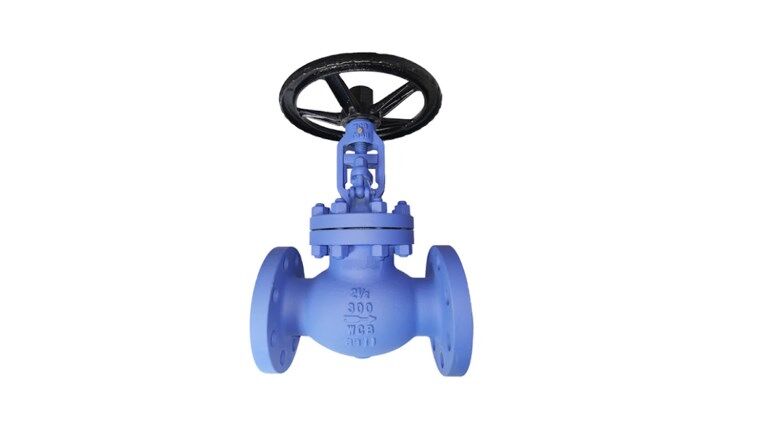Email format error
Email cannot be empty
Email already exists
6-20 characters(letters plus numbers only)
The password is inconsistent
Email format error
Email cannot be empty
Email does not exist
6-20 characters(letters plus numbers only)
The password is inconsistent

News

Bellows Seal Globe Valves: A Comprehensive Guide
In the world of industrial valves, bellows seal globe valves have become essential components, especially in applications where safety, durability, and leak prevention are paramount. These valves are specifically designed to provide a hermetic seal, preventing the leakage of hazardous fluids, which is a critical factor in industries like chemical processing, oil and gas, and power generation. This blog will delve into the unique features, advantages, and applications of bellows seal globe valves, offering insights into why they are preferred in demanding environments.
What is a Bellows Seal Globe Valve?
A bellows seal globe valve is a type of control valve that uses a bellows—a flexible, accordion-like structure made of metal—to create a seal between the valve stem and the process fluid. Unlike traditional globe valves, which rely on packing material around the stem to prevent leaks, bellows seal valves use the bellows as a barrier, ensuring that the process fluid does not escape even under high pressure and temperature conditions.
The bellows are welded at one end to the valve stem and at the other end to the valve bonnet, forming a sealed chamber. This design not only prevents leaks but also protects the stem from corrosive fluids, extending the valve's service life and reliability.
Advantages of Bellows Seal Globe Valves
One of the primary reasons industries opt for bellows seal globe valves is their ability to offer a leak-proof seal, making them ideal for handling hazardous and toxic substances. Here are some key advantages:
-
Enhanced Safety: The bellows provide a dual sealing mechanism that significantly reduces the risk of fluid leaks, which is crucial in applications involving dangerous chemicals or high-pressure systems.
-
Long Service Life: Made from robust materials like stainless steel, titanium alloys, or Inconel, the bellows are designed to withstand extreme conditions, resulting in a longer lifespan and fewer maintenance requirements compared to traditional valves.
-
Low Maintenance Costs: Unlike conventional valves that require regular packing adjustments to maintain a seal, bellows seal valves are largely maintenance-free. This leads to lower operational costs over the valve's lifecycle.
-
Emissions Control: By minimizing fugitive emissions, these valves contribute to environmental protection and help industries comply with stringent environmental regulations.
-
Versatility: Bellows seal globe valves can be used in a variety of applications, from high-pressure steam systems in power plants to corrosive fluid handling in chemical plants.
Applications of Bellows Seal Globe Valves
Bellows seal globe valves are found in numerous industries due to their versatility and reliability. Here are some of the most common applications:
-
Chemical Processing: In chemical plants, these valves are essential for controlling the flow of corrosive substances, ensuring that the process fluids do not leak and cause damage or contamination.
-
Oil and Gas: In the oil and gas industry, bellows seal globe valves are used in pipelines and processing facilities to manage the flow of hydrocarbons, preventing leaks that could lead to environmental disasters.
-
Power Generation: These valves are used in power plants to control the flow of steam, water, and other fluids in systems that operate under high pressure and temperature, such as boiler feedwater and cooling systems.
-
Pharmaceutical and Food Processing: In industries where hygiene is critical, bellows seal valves prevent contamination by ensuring that the process fluids do not come into contact with external elements.
Types of Bellows Seal Globe Valves
There are two main types of bellows used in these valves:
-
Forged Bellows: These are made from a single piece of metal that is shaped into a bellows structure through forging. They are highly durable and can withstand high pressures and temperatures, making them ideal for demanding applications.
-
Welded Bellows: These are made by welding together multiple layers of metal strips. While they offer greater flexibility, they may not be as strong as forged bellows and are better suited for applications where flexibility is more important than extreme pressure resistance.
Choosing the Right Bellows Seal Globe Valve
When selecting a bellows seal globe valve for a specific application, it is important to consider factors such as the operating pressure, temperature, the type of fluid being handled, and the required valve size. The choice of bellows material is also crucial; for instance, stainless steel bellows are suitable for general applications, while Inconel or Hastelloy may be required for more extreme conditions involving high temperatures or corrosive media.
Conclusion
Bellows seal globe valves are indispensable in industries that require reliable, leak-proof fluid control. Their robust design, coupled with the ability to handle hazardous and corrosive substances, makes them a preferred choice in a variety of critical applications. By understanding the features and advantages of these valves, you can make informed decisions when selecting the right valve for your specific needs.
Investing in bellows seal globe valves not only enhances operational safety but also reduces long-term costs, contributing to the overall efficiency and reliability of industrial processes. Whether you are in the oil and gas sector, chemical processing, or power generation, these valves offer a solution that combines durability, safety, and performance.
For further information on selecting and maintaining bellows seal globe valves, or to explore our range of products, feel free to contact us or visit our website.

